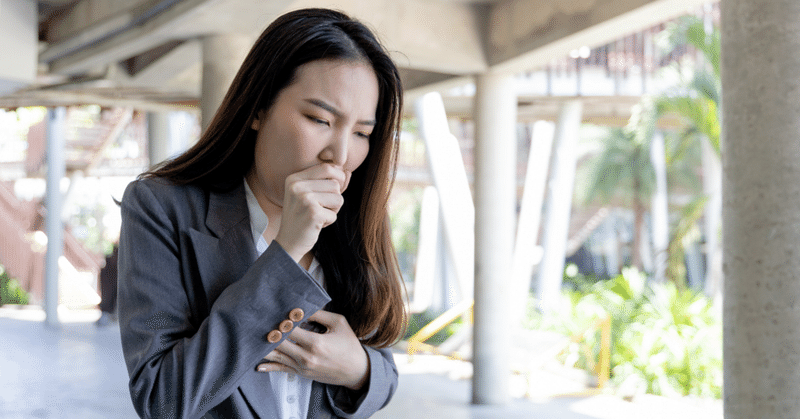
8 Essential Steps When You Suspect Long-COVID Symptoms
In this article, I've summarized steps you can take if you suspect you might be experiencing Long-COVID symptoms. I've focused on essential strategies that you can consider as a reference.
【Self-Introduction】
In April 2021, I contracted the Delta variant of COVID-19, which raised concerns about Long-COVID symptoms. I experienced a prolonged high fever of around 39 degrees for about ten days, ultimately leading to severe illness and hospitalization. Since that time, I've been grappling with intense fatigue, brain fog, breathing difficulties, and severe insomnia, in addition to other challenges like depression, panic disorder, and thoughts of self-harm.
Over the course of nearly two and a half years of battling Long-COVID, I sought medical help from almost 30 healthcare facilities across the country. Despite incurring self-funded medical expenses of approximately 20,000 dollars and experiencing unemployment on two occasions, I persistently explored a variety of treatment methods, encompassing both Western and Eastern medicine, including different medications.
Amidst this journey, one day, a specific treatment approach became a turning point, leading to a dramatic improvement in my condition. Now, I utilize my personal experience to provide consulting on essential treatment methodologies to Long-COVID patients, medical professionals, and bodywork therapists.
My primary occupation involves offering business and digital transformation consulting services to small and medium-sized business owners.
Background: My career spans experiences in trading companies, ventures, AI, SaaS, and my current role.
1. Take it Easy
First and foremost, avoid pushing yourself too hard. It's not an exaggeration to say that the duration and severity of Long-COVID symptoms can depend on this. Even if you feel like it's a waste to spend the weekend at home when you're not feeling well, it's essential to be cautious. You may face the possibility of a long-term battle, so prioritize not overexerting yourself.
2. Get Plenty of Sleep
At the stage where you suspect Long-COVID symptoms, getting a good night's sleep might be challenging due to potential sleep disturbances among these symptoms. However, if you can sleep, make sure to rest as much as you can. Work can wait; your future well-being is more critical. Lack of adequate sleep during this period can significantly increase the chances of long-lasting symptoms.
3. Cool Down Your Brain
One suspected cause of Long-COVID symptoms is the overheating (inflammation) of the brain. Cooling down your head is crucial. You can use ice packs or take a cold shower, applying them to areas where they feel comfortable. These are simple and effective practices you can do at home. Cooling gel sheet can also help.
4. Consider Epipharyngeal Abrasive Therapy
This approach might sound familiar. Early Long-COVID symptoms, including general fatigue and autonomic nervous system dysfunction, might be connected to inflammation in the area at the back of the throat known as the "EAT." Otolaryngology can offer this treatment. However, make sure to call ahead for availability, as not all clinics offer it. In many cases, patients experience improvements with around 10 sessions of treatment.
In addition, as part of home care, consider nasal irrigation, which can be started with a readily available kit for around 10 dollars .
5. Don't Overeat
Food intake can also be a significant burden on your body and its internal functions. Before considering what to eat or avoid, the most important thing is not to overeat. It can lead to increased inflammation and prolonged symptoms. Take a moment to assess whether you're truly hungry and what you want to eat rather than following a strict mealtime schedule.
6. Manage Stress
This is self-explanatory. Excessive stress can significantly compromise your immune function, as recent research has shown. Increase opportunities for "output" to manage stress, such as talking to people, taking walks, or writing down your anxieties and concerns. Be cautious not to overload yourself with input, like excessive reading or watching videos, as it can lead to mental health issues.
7.Relax
Though it might be challenging, try to laugh and cry consciously. Both laughing and crying can aid in the recovery of your autonomic nervous system. You've likely experienced this in your life at least a couple of times. During this time, prioritize relaxation. Consider activities like going to the movies or simply taking it easy at home to increase the time that makes you feel comfortable.
8. Seek Advice from Those with Experience
As the saying goes, "A fool learns from experience, a wise person from history." To navigate the most efficient path when it comes to Long-COVID symptoms, it's essential to seek advice from those with experience, not just medical professionals.
In Conclusion
How did you find these suggestions? This article has summarized what you should do if you suspect you have Long-COVID symptoms to prevent severe or prolonged effects. We hope that readers find this information helpful in preventing and recovering from Long-COVID symptoms.
Thank you for reading until the end.
Note: I typically share my experience related to Long COVID, depression, insomnia, panic disorder, ME/CFS, and supports those experiencing Long COVID symptoms on X (Twitter).
If you're interested, you can also check out my thought and expertise on living a healthy life both mentally and physically on X .
この記事が気に入ったらサポートをしてみませんか?
